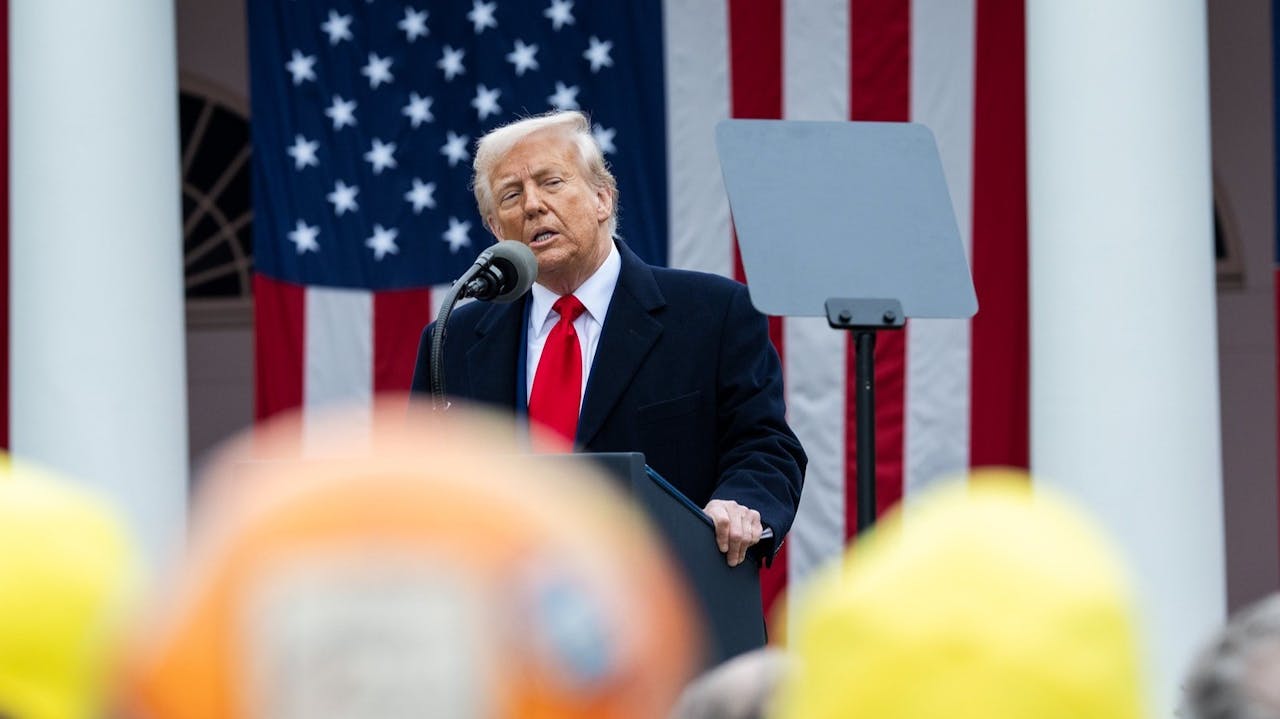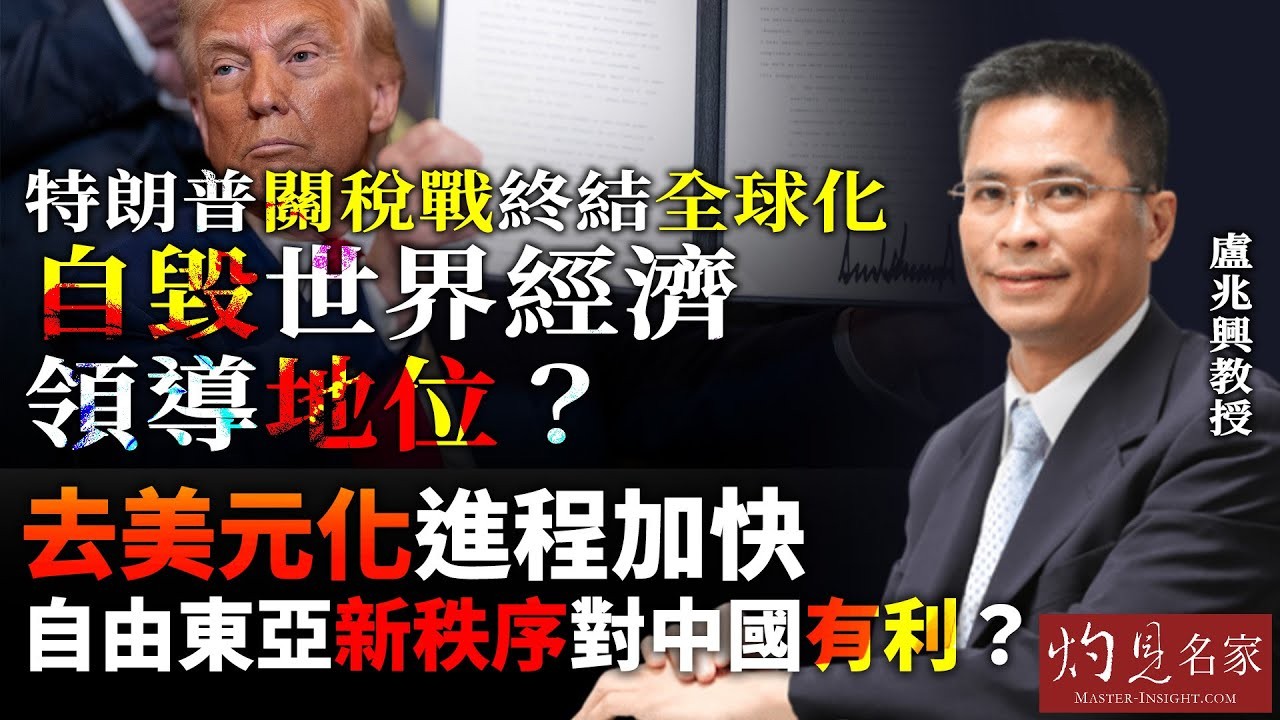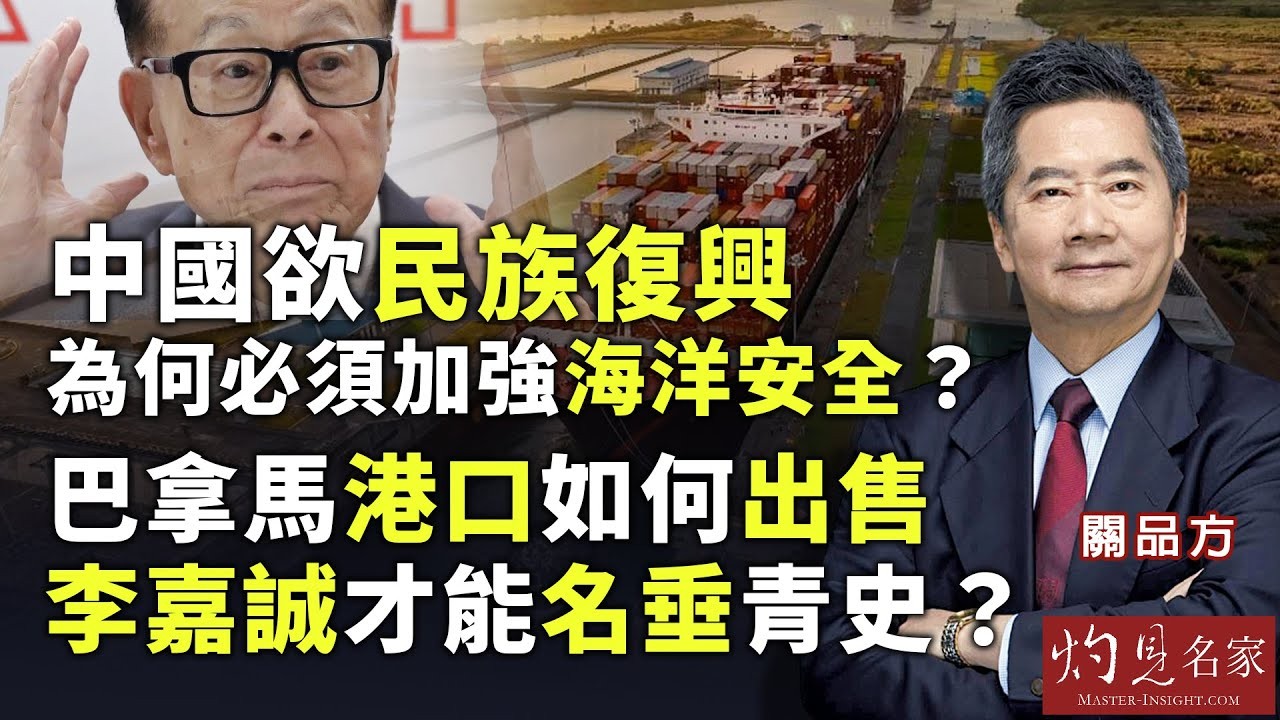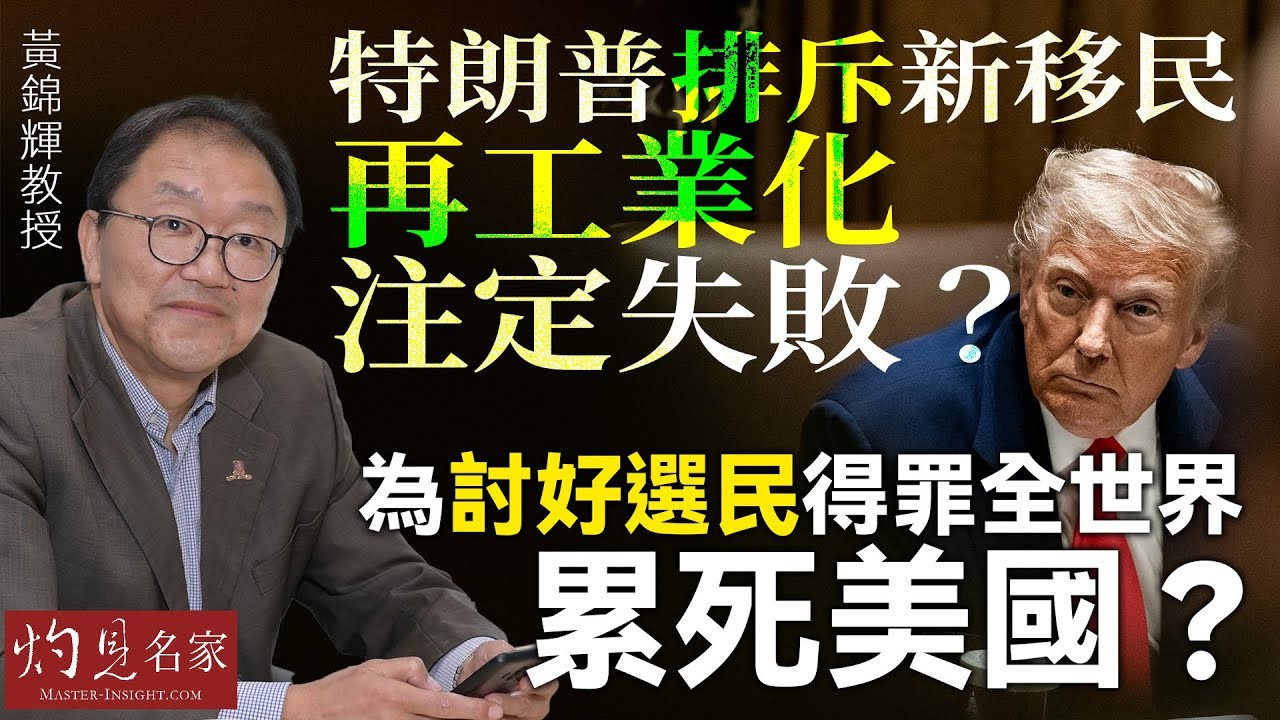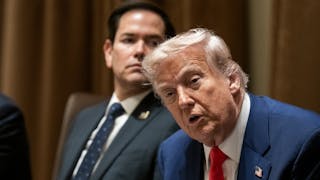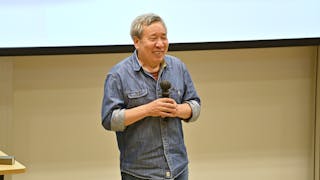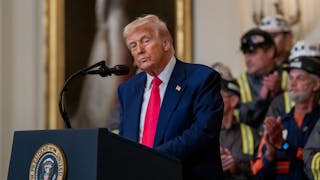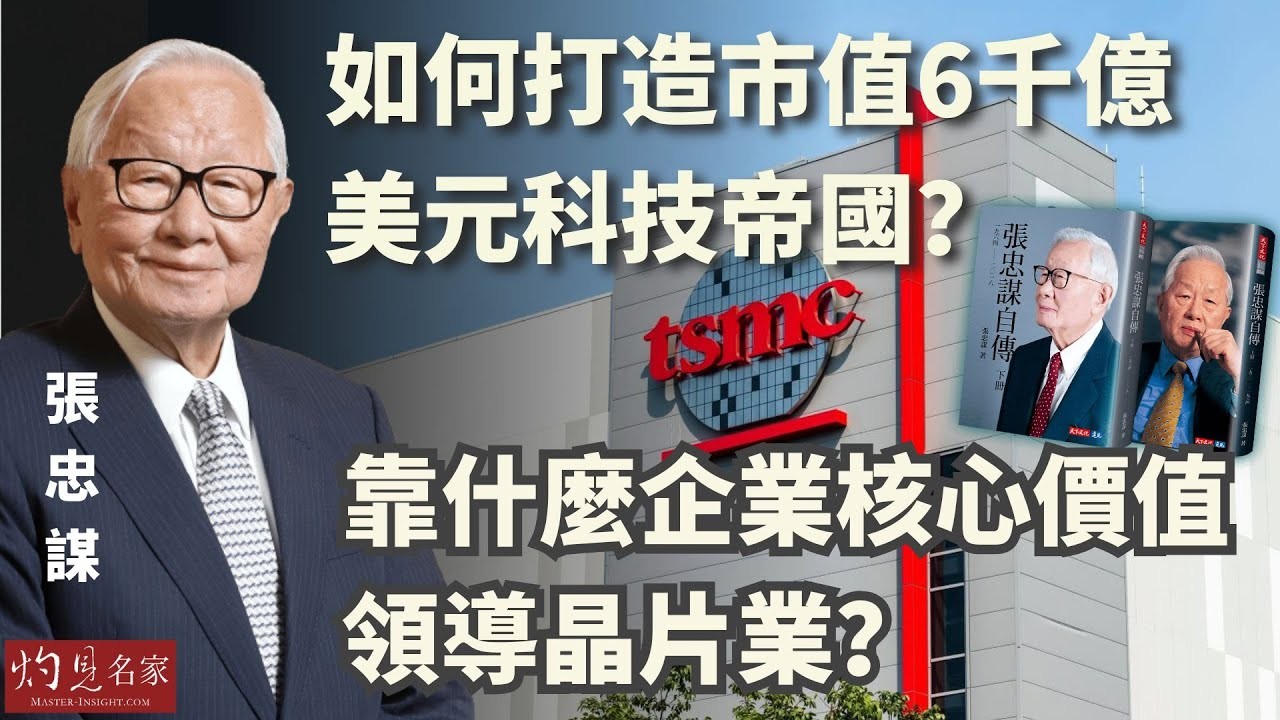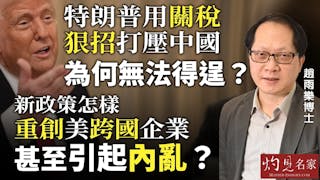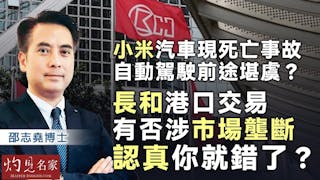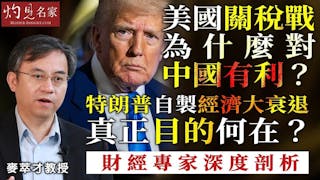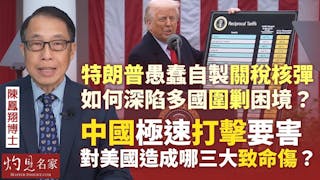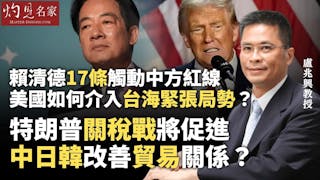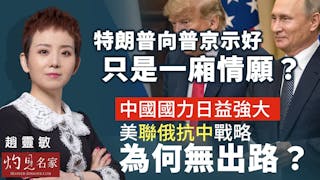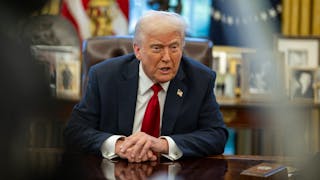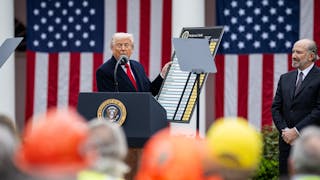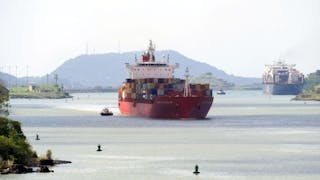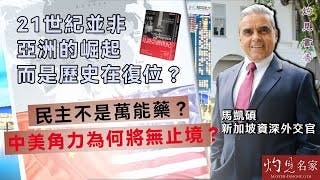特朗普政府宣布對世界多國實施對等關稅,不僅標誌着全球化時代的結束,也引發了國際政治一場針鋒相對的新貿易戰。
隨着美國總統特朗普於2025年4月2日正式宣布美國對約60個國家和地區加徵關稅,世界在1945年後經歷了長期由美國主導、基於規則的自由主義和相對自由的市場經濟後,將進入一個逆全球化的新時代。一些評論家認為,特朗普政府宣布的對各國對等關稅百分比是基於頗具爭議的計算,而中方已率先反擊。中國政府於4月4日宣布對美國商品加徵34%的關稅,以回應美國對華產品徵收34%的對等關稅。
一些經濟體已對美國的對等關稅作出了消極的反應。除了中國外交部強烈批評美國的關稅措施「嚴重破壞多邊貿易體制」、不符合國際貿易規則外,歐盟委員會主席馮德萊恩也認為,美國的對等關稅對全球經濟造成沉重打擊。台灣當局對此亦表示遺憾。澳洲總理阿爾巴尼斯則形容,美國對其徵收10%關稅是一個「糟糕」的決定,是不友好行為。
特朗普:對等關稅 仁至義盡
特朗普表示,鑑於各國先前不公平的貿易做法,對等關稅政策已屬仁至義盡。他還提到了美國在1930年對許多其他國家徵收的關稅,其時由胡佛總統簽署的《斯穆特-霍利法案》,正是一項保護主義貿易措施。特朗普相信對等關稅將提振美國經濟,而美國股市下跌已在預料之中。
除了中國以實際行動回擊美國加徵關稅外,加拿大也宣布對美國進口汽車加徵25%對等關稅,以回應美國對所有進口汽車加徵25%關稅的舉措。加拿大總理卡尼稱,措施對美國造成影響最大,對加國影響卻最小,但強調該國是迫不得已回應美國的關稅政策。
許多美國觀察家已經提到,對等關稅可能會刺激本土通脹,長期而言會抑制經濟增長。據估計,美國約10%消費來自於國外進口的商品和服務。但美國消費者短期內很難找到進口商品的替代品。商品價格上漲可能會削弱美國消費者的購買力,長期抑制經濟增長。
從國際政治的角度來看,特朗普政府的對等關稅或許標誌着全球化的終結,全球化現在被針鋒相對的討價還價政治所取代,從中國和加拿大對關稅政策的反擊便顯而易見。最重要的是,如果美國的外交政策從自由主義和對基於規則的秩序轉向經濟討價還價、交易外交和利潤驅動心態的新時代,那麼美國作為第二次世界大戰期間擊敗以德日意為首的軸心國而取得的世界領導地位就已經受到動搖。世界上許多國家和地區不再認為美國具有道德合法性。
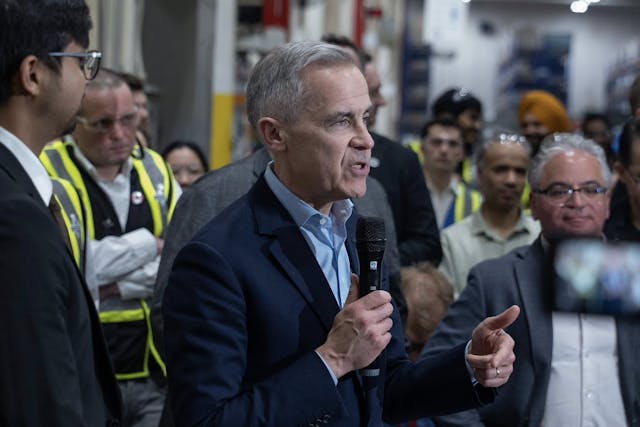
預期去美元化進程加快
更糟糕的是,美元作為全球經濟交易的通用貨幣,目前正步入持續貶值的階段。近年來,中國和其他國家開始在經濟和商業交易中使用本國貨幣。未來幾年,去美元化進程將會加速,主要是因為世界上許多國家正在見證美國從一個道德、自由、全球化的領導者,轉變為一個自私自利、非自由和推行保護主義的國家。
特朗普政府對待美國人民的方式加劇了美國不自由的形象。據報道,一些意識形態與特朗普支持者不一致的國家安全顧問已被清洗;在社交媒體上擁護親巴勒斯坦觀點、並參加抗議活動的外國學生成為目標,並被取消留學生簽證。毋庸置疑,每個國家都必須保護自己的國家安全利益;然而美國民主走向非自由傾向的風險令人擔憂,損害了它先前在世界其他地區人民眼中、受人尊敬的民主制度形象。
事實上,美國可能會利用對等關稅與各國討價還價,這將對國際政治的影響最為重要。特朗普曾提到在美國就TikTok問題與中國商討,但中國當局似乎沒有退讓的意思。如果其他國家以對等關稅的方式報復美國,全球貿易戰就會爆發,直接破壞全球供應鏈,甚至遲早讓世界陷入全球衰退。
再者,被美國徵收對等關稅的國家可能會轉向其他市場購買商品。世界貿易格局可能轉向其他歐盟國家,以及亞洲國家生產的商品。美國與許多亞洲國家的關係受到損害,其中包括日本和南韓等親密盟友。對等關稅對日韓的影響是巨大的:在特朗普的交易外交下,兩國可能會被要求為美國的軍事武器承擔更多費用,加重財政壓力。
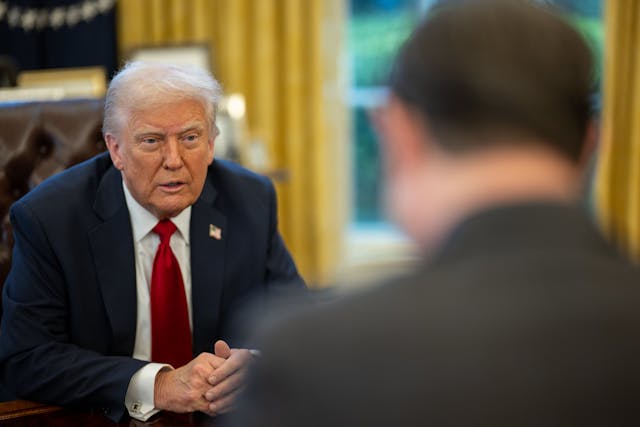
日韓須向歐盟購買軍備
日本和韓國最終可能不得不向歐盟尋求軍事裝備和武器。如果是這樣,諷刺的是,特朗普的交易式和商業式外交將使那些生產優質武器的歐盟國家受益,特別是德國、法國和美國在歐洲大陸的盟友──英國。傳統上政治中立的國家,尤其是葡萄牙,可能會在受軍事衝突困擾的地區和地區(尤其是烏克蘭)成為中間人和和平締造者,從而在維護世界和平方面發揮更重要的作用。
美國與歐盟的關係因對等關稅受到損害,這增加了美國如何與俄羅斯就烏克蘭戰爭直接討價還價的難度,同時似乎排除了法國和德國等歐盟核心國家的參與。然而,俄羅斯似乎並未就其烏克蘭問題的立場作任何重大讓步。特朗普提到,如果莫斯科繼續在烏克蘭談判中採取拖延策略,將對俄羅斯實施更嚴厲的制裁。然而,美國外交政策制定者如何真正與俄羅斯達成協議,如何平衡烏克蘭和歐盟以及莫斯科的利益,還有待觀察。
自毀世界經濟領導地位
美絕望外交政策 自毀世界經濟領導地位
此外,美國與地區組織的關係也受到損害。除了與美國發展不信任關係的歐盟外,其他有美國參與的地區組織的成員也會對華盛頓愈益不信任。世界許多國家對美國領導層的信任和信心危機將迫在眉睫,第二次世界大戰後不久,美國的「道德至上」和世界主導地位將成為過去。
另一方面,特朗普的對等關稅政策是美國試圖阻止其超級大國地位下降的絕望外交政策。美國仍然是軍事超級大國,但金磚國家等世界多國經濟崛起已經對美國的經濟領導地位構成挑戰。從批判的角度來看,美國向多國徵收的對等關稅正在敲響第二次世界大戰後、特別是前蘇聯解體後美國在世界經濟主導和領導地位的喪鐘。
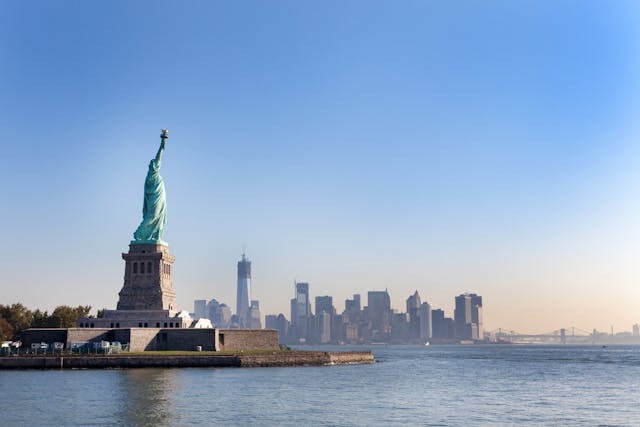
美國非但沒有堅守自由的全球經濟秩序,反而邁出了摧毀自身經濟領導地位的關鍵一步,這標誌着美國軟實力的持續下降,甚至在世界許多其他地區刺激了某種程度的反美情緒。這裏蕴含的意義深遠:隨着美國對等關稅的開展,在前蘇聯解體後由美國領導的單極世界將進入一個真正的多極世界,俄羅斯、中國、德國、法國、英國和其他金磚國家等國家正在集體或單獨地遏制美國的經濟領導地位。
港澳受益自由東亞秩序?
對香港和澳門的影響也很明顯。只要香港和澳門堅持在一國兩制原則下維持自由港和相對自由的經濟地位,兩個特別行政區就會繼續繁榮發展,並繼續支持中國在國際關係和貿易中維護多邊主義的自由主義原則,與許多其他國家開展業務。因此,港澳將在維持世界自由經濟秩序方面發揮至關重要的作用。如果中國能夠並將會與日本和韓國達成自由貿易協定,這一進程受到特朗普的對等關稅政策的刺激和加速,那麼港澳將成為自由東亞秩序的受益者。中國、南韓和日本之間的自由貿易協定也有望刺激北韓考慮加入東亞貿易集團,直接或間接遏制平壤的軍事優先政策,並為和平及其經濟融入新的自由東亞經濟秩序作貢獻。
綜上所述,特朗普政府對世界多國加徵關稅的目的是為了保護和實現美國的經濟利益,這是可以理解和預期的舉動。然而,其意想不到的後果將是巨大的:許多美國前盟友對美國的不信任正在加劇;與鄰國加拿大及其目標敵人中國的貿易戰已經開始;其與日本和韓國傳統上的密切關係也受到損害,有可能刺激中日韓加快達成自由貿易協定。
長期而言,經濟增長可能會受到抑制,短期內可能引發經濟通脹。特朗普的「美國優先」政策代表了一位新當選的極端保守總統為阻止美國經濟衰退而試圖孤注一擲。美國現在正見證著一個日益多極化的世界,可以預見在未來幾年和幾十年中美國唯一掌握的王牌就只有其軍事力量。
US reciprocal tariffs and their profound impact on international politics
The decision of the Donald Trump administration to implement reciprocal tariffs on many countries in the world has not only signalled the end of the globalization era, but also unleashed a new trade war with tit-for-tat politics in international politics.
With the formal announcement by US President Donald Trump on the US reciprocal tariffs on some sixty countries and places on April 2, 2025, the world has entered a new era of anti-globalization after a long period of the US-led liberal rules-based order and a relatively free market economy in the post-1945 world. The percentages of reciprocal tariffs announced by the Trump government on various countries are, according to some critics, based on questionable calculations, but have already triggered the retaliatory measures by China, which announced on April 4 with 34 percent tax on US goods in response to the 34 percent of US reciprocal tariffs on Chinese products.
Some economic entities have already reacted strongly and negatively to the US reciprocal tariffs. Apart from the Foreign Ministry of the People’s Republic of China saying that the US measures “seriously undermine the multilateral mechanism” and that they do not conform to international trade rules, the European Commission President Ursula von der Leyen regarded the US reciprocal tariffs as having “a major blow to the world economy.” She added that EU countries will start negotiating with the US side. Taiwan’s government authorities reacted to the US tariffs by expressing their regret and saying that they are unfair. Australian Prime Minister Anthony Albanese said that the US announcement of a 10 percent tariff on Australian goods was a “poor” decision, and that such tariff is “not an act of a friend.” Many countries and places in the world have been reacting to the US reciprocal tariffs negatively.
US President Donald Trump said that the reciprocal tariffs represent a “very kind” policy from his government, given the previously unfair trade practices. He also referred to the old US tariffs on many other countries in 1930, during which the Smoot-Hawley Act was a protectionist trade measure signed into law by President Herbert Hoover. Trump believes that reciprocal tariffs will boost the US economy, and that the decline in US stock market prices has already been expected.
In addition to China’s immediate response to the US reciprocal tariffs, Canada also announced a 25 percent reciprocal tariff on imported vehicles from the US, which has also levied 25 percent tariffs on automobile imports. Canadian Prime Minister Mark Carney said” “We take these measures reluctantly. And we take them in ways that is intended and will cause maximum impact in the US and minimal impact in Canada (Associated Press, April 4, 2025).”
Many US observers have already mentioned that US reciprocal tariffs will likely bring about domestic inflation and that they will dampen growth in the long run. It has been estimated that roughly 10 percent of US consumption is accounted for by goods and services imported from abroad. But it is difficult for US consumers to find substitutes for imported goods in the short term. Upward prices on goods will likely curb the purchasing power of US consumers, dampening growth in the long run.
From the perspective of international politics, the Trump administration’s reciprocal tariffs have perhaps signalled the end of globalization and globalization is now replaced by the politics of tit-for-tat bargaining. The reactions from China and Canada can be easily seen. Most importantly, if the US foreign policy has transformed from its liberalism and attachment to the so-called rules-based order to a new era of economic bargaining, transactional diplomacy and profits-driven mentality, its former world leadership as one of the core leaders defeating the axis of Nazi Germany, fascist Italy and imperialistic Japan during World War Two has been tarnished. Many countries and places in the world no longer see the US as having moral legitimacy.
Even worse, the US dollars as the common currency of economic transactions in the world are now stepping into a stage of gradual decline. In recent years, China and other countries have begun to use their own currencies in economic and business transactions. The process of de-dollarization is going to speed up in the coming years, mainly because many countries in the world are witnessing the US transformations from a moral, liberal, globalized leader to a self-seeking, “illiberal” and self-protectionist actor in the world.
The illiberal image of the US is now exacerbated by the Trump administration’s handling of its own American people. Some national security advisers whose ideology is not in conformity with the Trump supporters have reportedly been purged; and foreign students espousing pro-Palestinian views in social media and participating in protests are reportedly targeted and have their visas revoked. Indeed, every country must protect its national security interests. Nevertheless, the danger of the US democracy drifting toward some “illiberal” tendencies is alarming, thereby tarnishing the image of its previously respected democratic system in the eyes of peoples in other parts of the world.
The most significant impact of reciprocal tariffs on international politics is that the US is likely going to use them to bargain with different countries in the world. Trump has mentioned the bargaining with China over TikTok in the US, but the Chinese authorities have shown no sign of making concessions. If other countries retaliate against the US by using reciprocal tariffs, a global trade war is going to emerge, directly undermining the global supply chains and perhaps plunging the world into perhaps a global recession sooner or later.
Many countries under the US targets of reciprocal tariffs will likely turn to other markets for their goods. The trade patterns in the world will likely shift to other EU countries, especially for goods produced by Asian nation-states. The relations between US and many Asian nation-states have been undermined, including close allies such as Japan and South Korea. The implications of reciprocal tariffs on Japan and South Korea are tremendous: under Trump’s transactional diplomacy, Japan and South Korea will likely be asked to pay more for the US military weapons, thereby exerting pressure on the Japanese and South Korean treasuries. Japan and South Korea may eventually have to turn to EU for military equipment and weaponry. If so, Trump’s transactional and business-style diplomacy will ironically benefit those EU countries that produce good quality weaponries, notably Germany, France and UK. Traditionally politically neutral countries, notably Portugal, will likely play a more crucial role in maintaining world peace by becoming intermediaries and peace-makers in regions and areas plagued by military conflicts, notably Ukraine.
Given the fact that Covid-19 and its variants had already plunged the world into a global economic crisis from 2020 to 2022, any sudden reemergence of a widespread infectious disease will likely accelerate the deepen such global recession in the coming years. If nation-states prioritize their own economic interests above anything else, like the US under Trump economically, they will struggle among themselves to manage new infectious diseases. This could lead to isolated nations dealing with health pandemics. During the Covid-19 outbreak, many countries collaborated independently rather than relying on the US, whose President Trump at that time blamed China in 2020 on the origin of Covid viruses.
The US relations with EU have been hurt by reciprocal tariffs, adding to the complexities of how the US has bargained directly with Russia over Ukraine’s future while seemingly excluding the participation of core EU countries like UK, France and Germany. Yet, Russia does not appear to make any significant concessions on its position over Ukraine. President Putin has, according to reports, demanded the removal of President Zelensky in the process of negotiating with the US. Trump has mentioned the usage of tougher sanctions on Russia if Moscow continues to play a delaying tactic in the Ukraine negotiations. However, it remains to be seen how the US foreign policy makers can really bring about a deal with Russia that will strike a balance between the protection of Ukraine’s and EU’s interests and that of Moscow.
Reciprocal tariffs can be seen as an indispensable element in Trump’s transactional diplomacy. Yet, many countries are going to develop distrust toward the US from now onwards. If trust-building was a result of the Second World War among the US-led allies, reciprocal tariffs and transactional diplomacy are now influencing the dynamics of mutual trust among US allies in the coming years.
The relations between the US and regional organizations have also been harmed. Apart from the EU that develops distrustful relations with the US, other regional organizations that have US participation will have members casting a distrustful eye toward Washington. A crisis of trust and confidence will loom among many countries in the world toward the US leadership, whose “moral supremacy” and world dominance shortly after World War Two are going to be the thing of the past.
From another perspective, Trump’s reciprocal tariffs policy is a desperate American foreign policy that attempts at arresting its decline in status as a superpower. The US is still a militarily superpower, but the rising economies of many countries in the world, such as BRICS, have already challenged the US economic leadership. Reciprocal tariffs imposed by US on many other countries, from a critical perspective, is sounding the death knell of US economic dominance and leadership in the world after World War Two, especially after the collapse of the former Soviet Union.
Instead of clinging onto the liberal global economic order, the US has taken a crucial step to destroy its own economic leadership, signaling the continuous decline of US soft power and even stimulating some degree of anti-Americanism in many other parts of the world. The implication here is tremendous: the former unipolar world led by the US after the collapse of the former Soviet Union is now, with the onset of US reciprocal tariffs, entering a really multipolar world in which many other countries like Russia, China, Germany, France, UK and other countries of the BRICS are collectively and individually curbing the US economic leadership.
The implications for Hong Kong and Macau are also obvious. As long as Hong Kong and Macau adhere to the principles of maintaining their free port and relatively free economic status under the principle of “one country, two systems,” both special administrative regions will continue to thrive, and will continue to do business with many other countries by supporting China’s liberal principle of upholding multilateralism in international relations and trade. As such, Hong Kong and Macau will play a crucial role in sustaining the world’s liberal economic order. If China can and will reach a free trade agreement with Japan and South Korea – a process stimulated and accelerated by Trump’s reciprocal tariffs policy – then Hong Kong and Macau will become the beneficiaries of a liberal East Asian order. A free trade agreement among China, South Korea and Japan will also hopefully stimulate North Korea to consider entering the East Asian trade bloc, directly or indirectly taming Pyongyang’s military first policy and contributing to peace and its economic integration into a new liberal East Asian economic order.
In conclusion, the Trump administration’s reciprocal tariffs on many countries in the world aim at protecting and achieving US economic interests – an understandable and expected move. However, its unintended consequences will be tremendous: the distrust of many former US allies toward the US is gaining momentum; the trade war with its neighbour Canada and its target enemy China has begun; its traditionally close relations with Japan and South Korea are also undermined, with the prospect of stimulating China, Japan and South Korea to accelerate the process of reaching a free trade agreement.
Above all, the long-cherished moral and economic leadership of the US built up so importantly by its participation in the Second World War is now seriously questioned and at stake, with the results of benefiting some European countries, whose vast markets provide the new destinations for Asian goods that become too expensive to American consumers. Even worse, the US may have short-term gains but long-term pains; its economic growth will likely be dampened in the long run and its economic inflation will likely be triggered in the short term. Trump’s American First policy represents a desperate attempt by a newly elected and ultra-conservative president to arrest the economic decline of the US, which is now witnessing an increasingly multipolar world and whose military power remains the only trump card that Washington is holding in the coming years and decades.
原刊於澳門新聞通訊社(MNA)網站,本社獲作者授權轉載。(原文按此)



